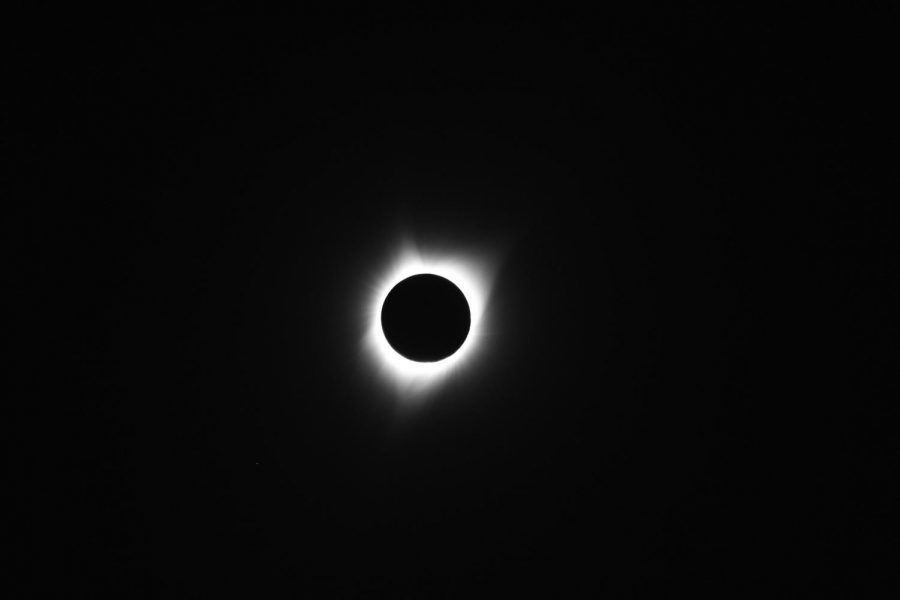Totality perfect
August 28, 2017
The total solar eclipse on Aug. 21 was predicted to bring over one million people to Oregon, along with unbearable traffic, cleaned-out grocery stores and logistical headaches for local officials and residents. None of these concerns came true, said Patrick Rollens, the public information officer for the City of Corvallis.
“We kind of got the ‘Goldilocks experience’: not too many, not too few, but just right,” Rollens said.
According to Rollens, the predictions made for the eclipse were generous, and, while city officials may have overestimated the number of people who would show up, it was much better to be prepared than overwhelmed during the day of the event. While there is no estimate yet of how many people came to watch the solar eclipse at OSU specifically, Rollens said that the influx of visitors appeared to be slightly higher than what is seen on a football game day.
The media, emergency management partners and the general public were able to establish a message and get it out to those who were planning on coming to Oregon, according to Paula Negele, a public information officer for the Oregon Office of Emergency Management.
“We feel that the many months of planning paid off,” Negele said in an email. “People arrived early, had very little trouble getting to their eclipse viewing spots and, overall, had an excellent experience.”
There were very little inconveniences, if any, during the eclipse, according to Negele. There were no damages or incidents that required handling on the state level, and student, teachers and travelers were able to view the eclipse safely.
“We stressed the importance of safe travel, of preparing for delays, having adequate supplies, being mindful of fire dangers and eclipse watchers did just that,” Negele said in an email. “We thank the public for being prepared and for being prudent.”
While not as many people traveled to Corvallis to view the solar eclipse as anticipated, a large number of people did come to the area to share the rare experience together, according to Michael Bamberger, the emergency preparedness manager at OSU.
“They came prepared with supplies, eclipse glasses and a positive attitude,” Bamberger said in an email.
Echoing Rollens and Negele, Bamberger said that careful planning and having all response resources available allowed activities at OSU to occur smoothly. The city, hospitals, volunteer fire departments, law enforcement, public works, parks and public health departments were fully staffed in the case of an emergency.
“We learned that it is never too early to start planning, especially for complex events that have several different partners involved,” Bamberger said in an email. “Planning together ensures expectations are met, resources are shared and potential problems are resolved before the event occurs. There is strength through collaborative sharing of information when developing plans and events.”
According to Rollens, all the events which took place at OSU went extremely smooth, and people were able to safely and conveniently get to their desired eclipse viewing areas without trouble.
“The crowds on campus were wonderful and respectful others. People were constantly thanking OSU for putting on the experience they wanted. Seemed the folks at the OSU events didn’t want a Madras or Salem-style eclipse-viewing event,” said Randall Milstein, an astronomy professor at OSU and an astronomer-in-residence for the Oregon NASA Space Grant Consortium, via email.
For Rollens, being able to put aside longstanding logistical worries made the event even more enjoyable.
“To know that pretty much everyone in our area was able to sit back in a lounge chair and look up and enjoy the show in the sky rather than sit in traffic and wonder if they’ve got enough gas to make it home—that sort of thing—that was just great,” Rollens said.
According to Milstein, after seeing a partial eclipse in 1979, he had been ready to finally experience this cosmic event.
“Totality—coolest thing ever,” Milstein said in an email.
























































































































